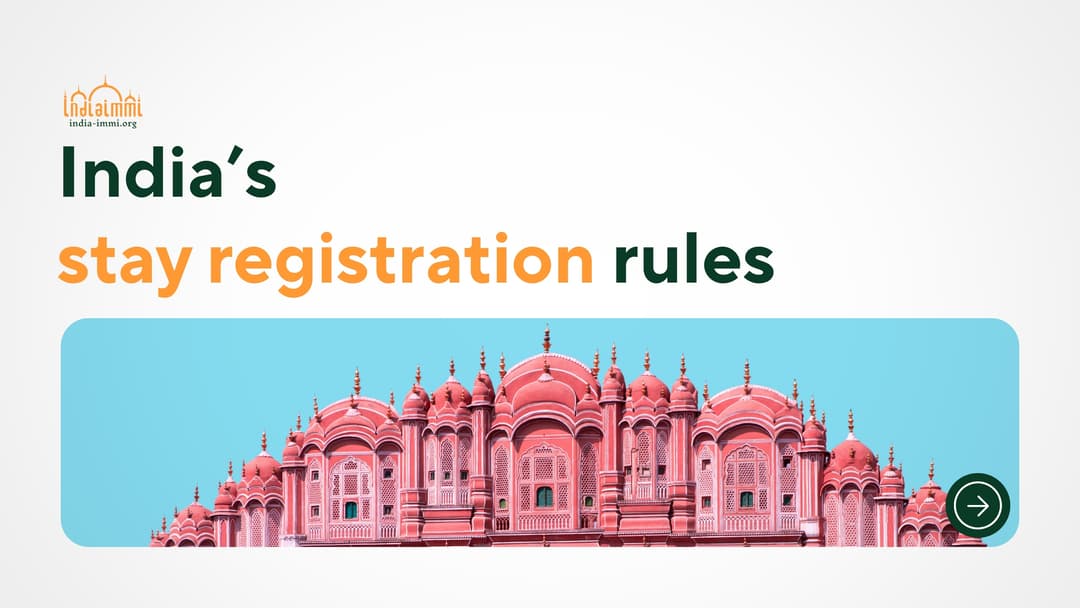India has long been one of the world’s most important destinations, not only because of its diverse culture and thousands of years of history but also due to the dynamism of its emerging economy. In the context of increasing international exchanges, the demand for entry into India for diplomatic, business, trade, and tourism purposes continues to grow.
One of the main concerns for international travelers before their trip is the visa application process. However, in practice, the Government of India has signed numerous visa exemption agreements with more than 130 countries/territories for non-ordinary passports (Diplomatic, Official, Service, Special). This effort aims to facilitate foreign relations, promote exchanges between nations, and ensure official travel is more convenient.
In this article, we provide a comprehensive overview of India’s visa exemption policy, highlight some representative countries eligible for exemption, and guide you on how to check whether your country is included.
1. What is Visa Exemption in India?
Visa exemption means that passport holders under applicable categories may enter India without applying for a visa in advance. Key features:
-
Not applicable to ordinary passports.
-
Length of stay is specifically regulated (30, 45, or 90 days).
-
Only applicable to certain types of passports: Diplomatic, Official/Service, Special.
-
Each agreement specifies the date of signing, effective date, and maximum duration of stay.
2. Two Groups of Visa Exemption Agreements
India’s visa exemption policy is divided into two major groups:
Group A: Agreements for Diplomatic and Official/Service Passports
This group accounts for the majority of the 130+ agreements. Holders of Diplomatic and Official/Service Passports (depending on the country) are exempted from visas when entering India.
👉 Examples:
-
Albania - Diplomatic & Official (effective from 2018).
-
Algeria - Diplomatic & Official/Service; exemption valid for 90 days.
-
Andorra - Diplomatic & Official; exemption for 90 days, effective from 2024.
-
Argentina - Diplomatic & Official; exemption for 90 days or until mission completion.
-
Azerbaijan - Diplomatic, Official & Service; exemption for 90 days.
-
Bahrain - Diplomatic & Special/Official; exemption for 90 days.
-
Bahamas - Diplomatic & Official; exemption for 90 days.
-
Bangladesh - Diplomatic & Official; exemption for 45 days.
Group B: Agreements for Diplomatic Passports Only
Some agreements are limited solely to Diplomatic Passports, excluding Official/Service ones.
👉 Example:
-
Afghanistan - Diplomatic only; exemption for 30 days.
3. How to Check if Your Country is Visa-Exempt?
The official list from India’s Ministry of External Affairs includes over 130 countries/territories. Each has specific conditions, and the list is regularly updated.
Due to the large number and complexity, the full list cannot be provided here.
💡 Contact us directly to get the most accurate and up-to-date information on whether your country is visa-exempt for India.
4. Why is this Information Important?
-
Save time and costs - If you are exempt, no visa paperwork is needed, shortening trip preparation.
-
Ensure compliance - Understanding visa exemption helps avoid entry or stay violations.
-
Facilitate official missions - For diplomats and officials, smooth entry is essential for work efficiency.
-
Clarify real needs - If not exempt, you must apply for an e-Visa or traditional visa for legal entry.
5. Solution for Ordinary Passport Holders
Most travelers and businesspeople use ordinary passports, which are not visa-exempt. In this case, the fastest and most effective option is to apply for an Indian e-Visa.
At India-immi.org, we support customers with professional e-Visa services:
-
Simple, online - Entire process is online; no need to visit embassies.
-
Accurate applications - Minimize errors in submission.
-
Multiple categories - Tourism, business, medical, conference, etc.
-
24/7 dedicated support - Our experts accompany you throughout the process.
Conclusion
India’s visa exemption policy is divided into two groups:
-
Agreements for Diplomatic & Official/Service Passports - majority group, usually valid 30-90 days.
-
Agreements for Diplomatic Passports only - limited group, e.g., Afghanistan.
This is an important tool to strengthen diplomatic cooperation and facilitate official exchanges. However, if you hold an ordinary passport, you still need to apply for an e-Visa or traditional visa to legally enter India.
👉 Contact India-immi.org now for fast, accurate, and safe e-Visa support for your trip to India!






